Re: No autopilot in WWII fighter aircraft
Thu Apr 03, 2014 6:24 am
Other wartime single-engined types equipped with autopilot would include TBF/TBM Avenger and TBY-2 Sea Wolf.
Re: No autopilot in WWII fighter aircraft
Thu Apr 03, 2014 8:09 am
Not a fighter but didn't the Curtiss SB2C Helldiver gain an autopilot as part of the fixes for it's poor stability?
Re: No autopilot in WWII fighter aircraft
Thu Apr 03, 2014 9:14 am
Boyington wrote of trimming out his corsair, tying the controls with string and taking a nap en route while the wingman kept an eye out for Japanese fighters.... said that if the plane began to climb or dive the change in engine note would wake him up.
Re: No autopilot in WWII fighter aircraft
Thu Apr 03, 2014 11:15 pm
I couldn't find any single engine fighters from WWII that had autopilots installed in the manuals that I have available,but I don't have manuals for the P-47N or the F6F-5N.The TBF/TBM and SB2C as mentioned earlier in the thread definitely had autopilots,but as also mentioned,neither were fighters.Since you are asking in comparison with the A-10,a couple of twin engine WWII aircraft that were technically fighters had autopilts installed.
Here are the pages showing the autopiot installation in the Lockheed F-5A photo version of a P-38J (I believe),although the fighter versions apparently didn't have this installation:

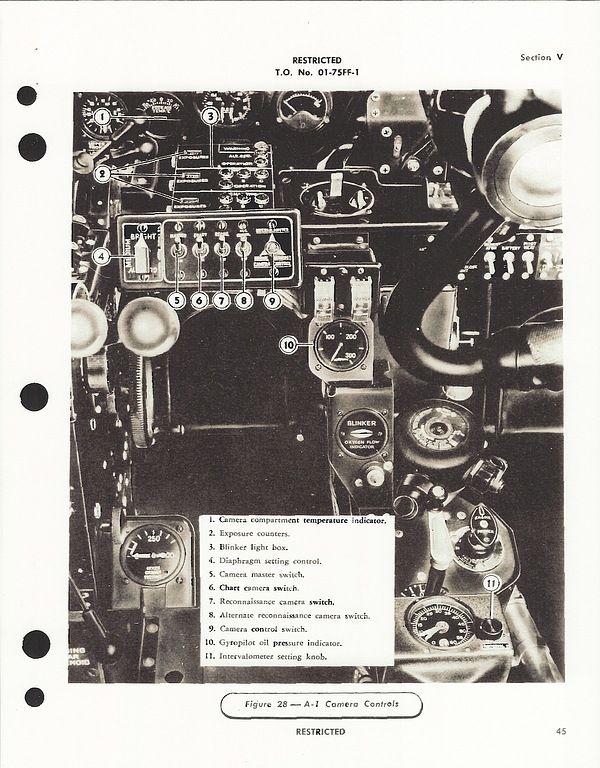
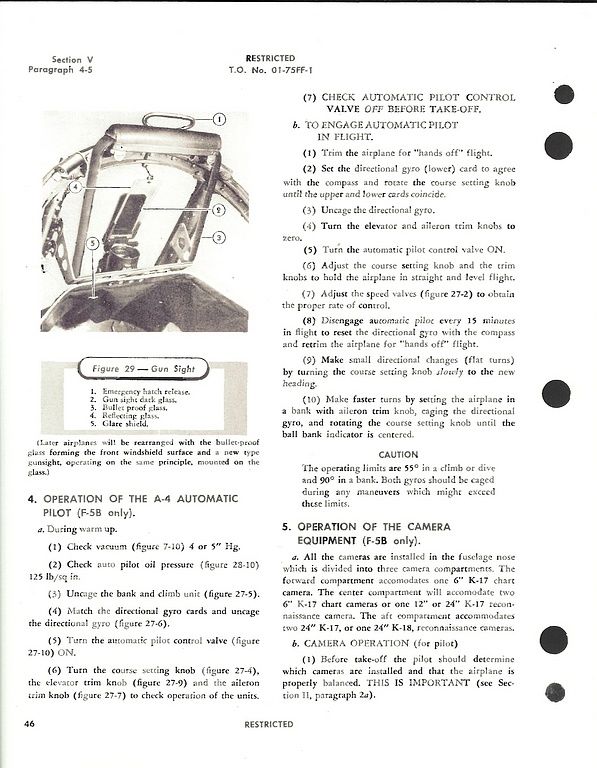
The P-61 also had an autopilot.It was a fighter,but was more in the class of an A-20 than even the P-38
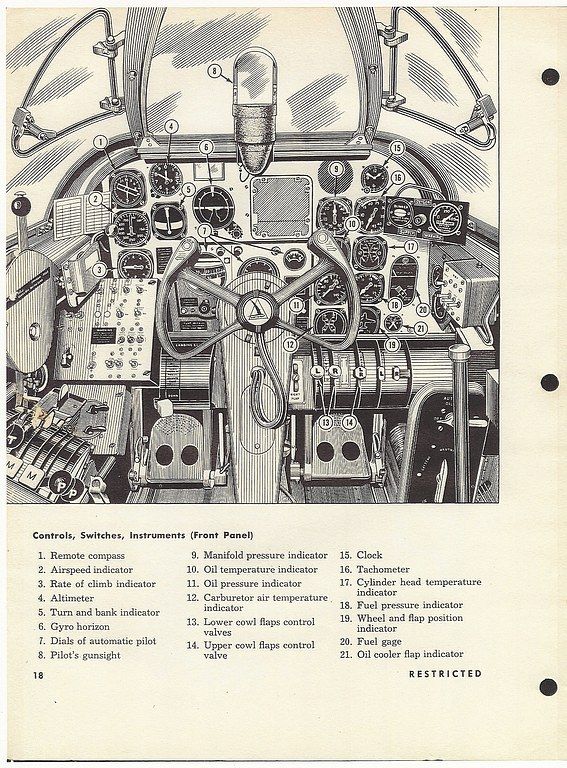

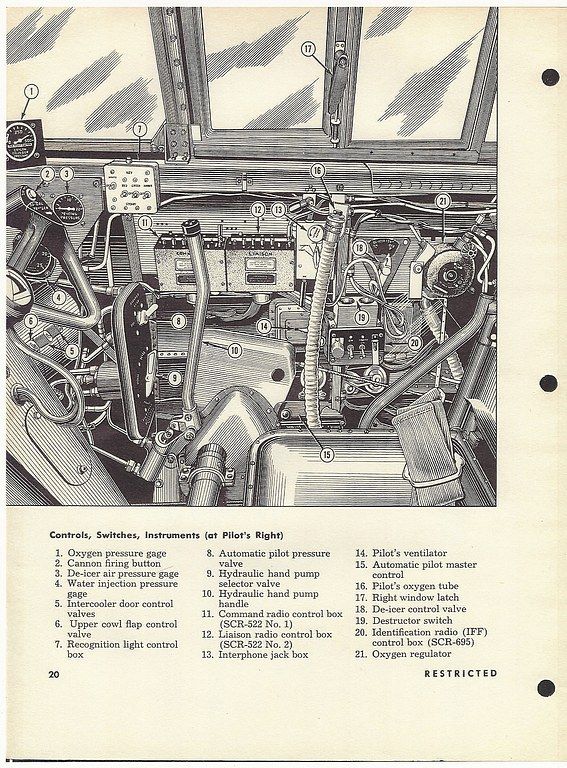
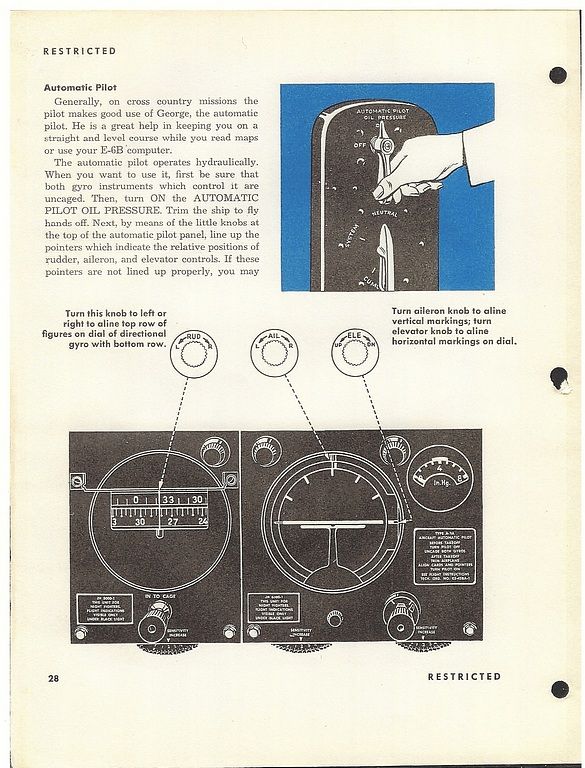
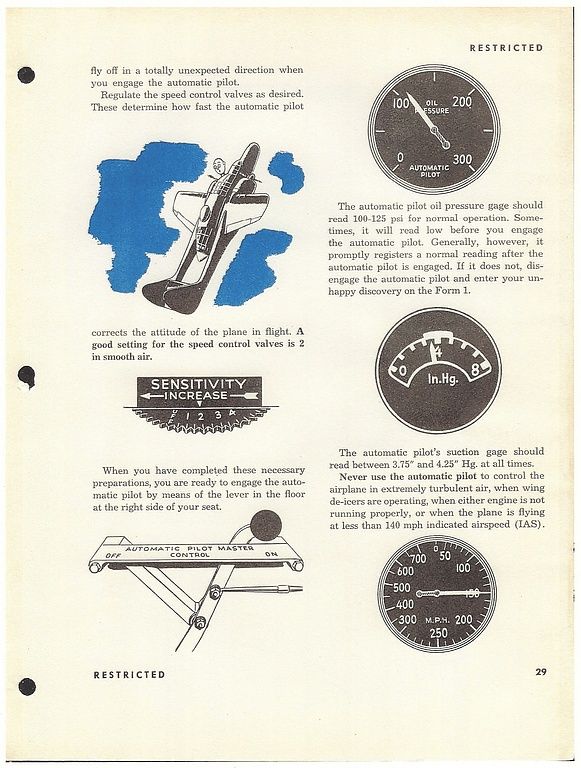
This last page on what might happen when you engage an autopilot happened to me in a Twin Beech once.I was smart enough to try engaging it for the first time on a clear day and at 10,000 feet.The autopilot engaged full right rudder and also tried to tuck under in a steep dive.I'd made sure that all of the trim setting on the autopilot were zeroed out before engaging it.There's a good reason that there are several ways to disengage an autopilot in a hurry.
Here are the pages showing the autopiot installation in the Lockheed F-5A photo version of a P-38J (I believe),although the fighter versions apparently didn't have this installation:



The P-61 also had an autopilot.It was a fighter,but was more in the class of an A-20 than even the P-38





This last page on what might happen when you engage an autopilot happened to me in a Twin Beech once.I was smart enough to try engaging it for the first time on a clear day and at 10,000 feet.The autopilot engaged full right rudder and also tried to tuck under in a steep dive.I'd made sure that all of the trim setting on the autopilot were zeroed out before engaging it.There's a good reason that there are several ways to disengage an autopilot in a hurry.